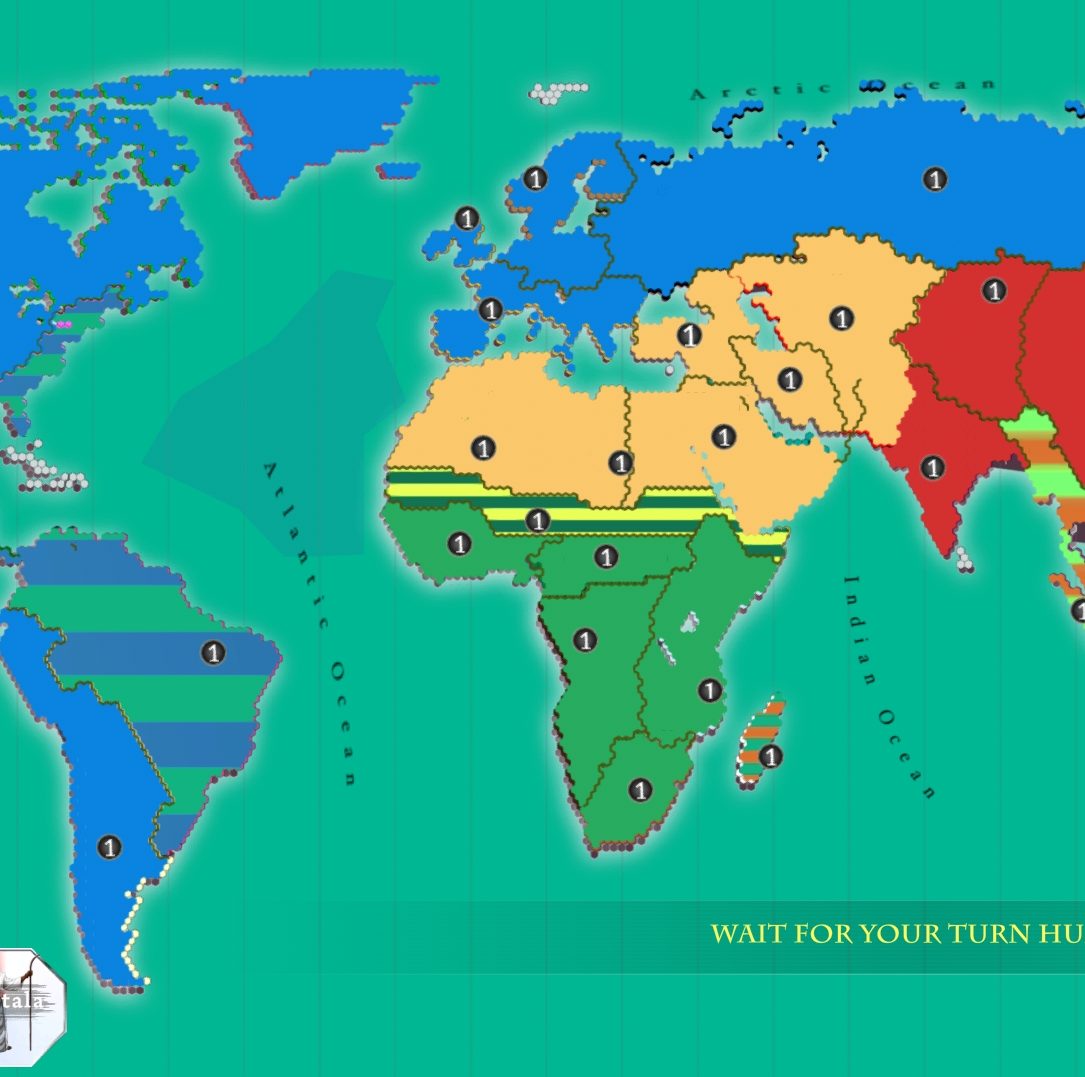Prince Justice J Faloye
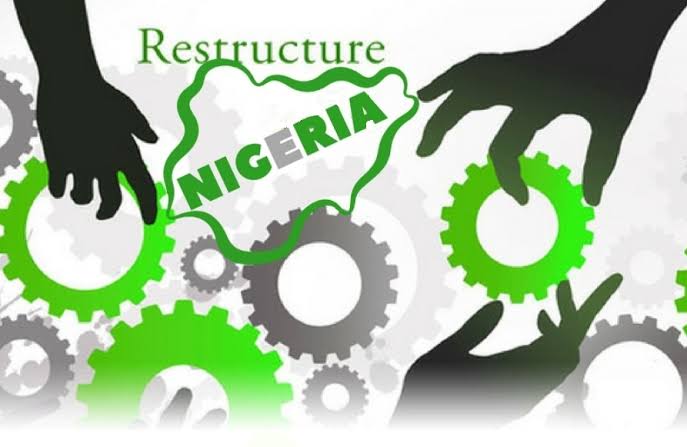
Unless we rely on anarchy and total system collapse to push complete political Restructuring, we need a quorum of two thirds, 66%, of votes, but with only about four states being financially viable, it might be a tall order to expect financially dependent states to vote for true fiscal federalism. Therefore it might be wise to address the colonial foundations of the Nigeria economy that has skewed development towards only a few states. Nevertheless, low hanging fruits like State Police demands could be achieved, but things like true representative democracy whereby ethnicities are empowered to vote out states to join congruous states or form their own will require a quorum to push through constitutional amendments.
We tend to forget that Nigeria is a product of European economic imperialism. A business enterprise started by the Royal Niger Company in an Age of Mercantilism when governments used everything including military means to promote merchant business. Therefore before the formal amalgamation of the two existing civilizations – Indigenous African and Afro-Arabic, the European colonists built railways from the innermost hinterland to the seaports to divert the existing civilizational trade routes to a colonial trade route and economy.
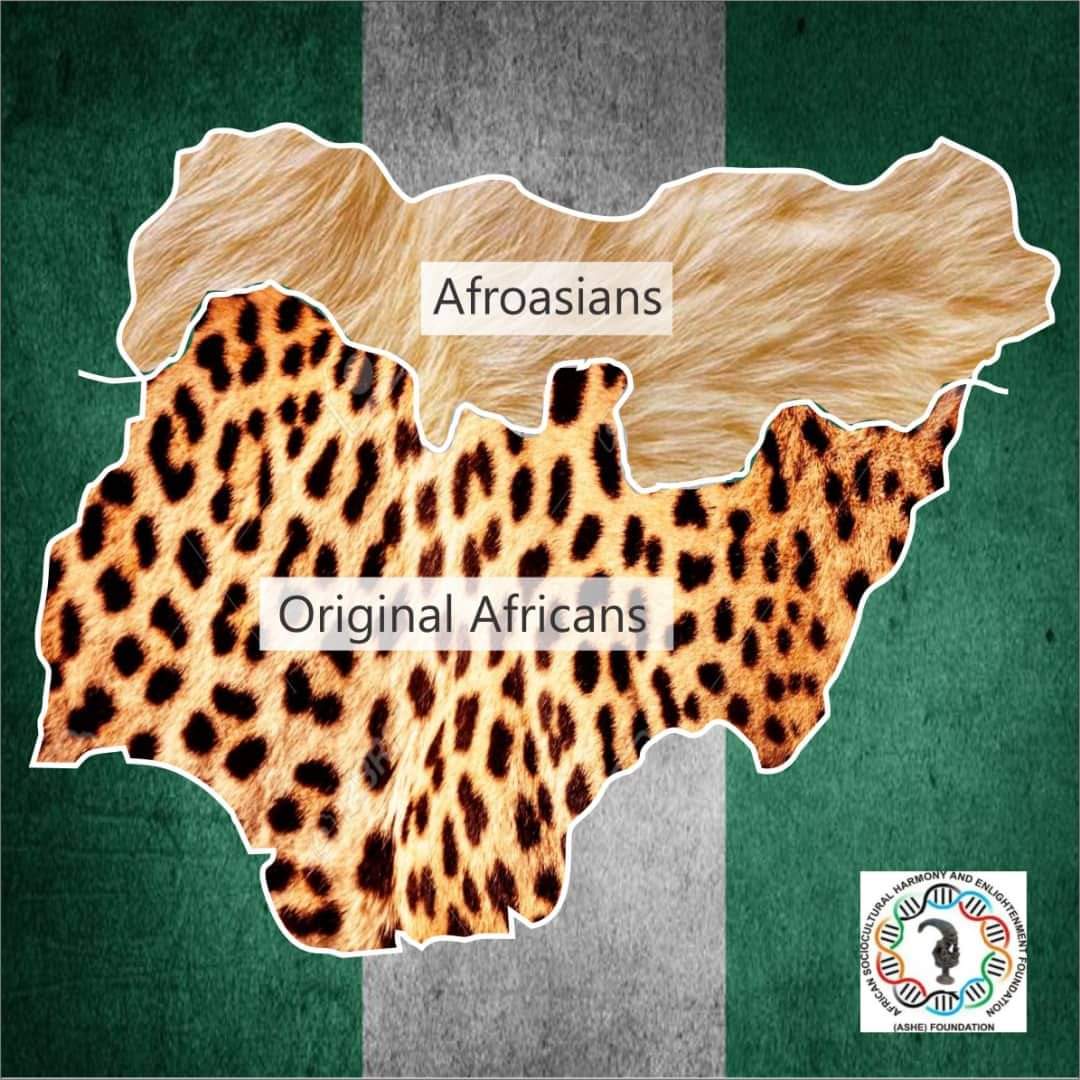
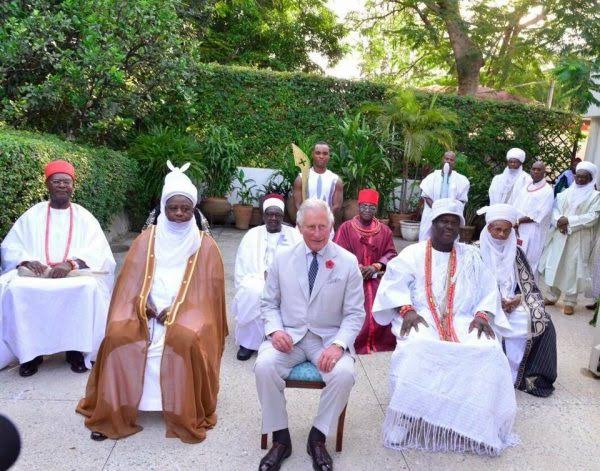

The Northern Afro-Arabic civilization was added to the Southern Indigenous African civilization, because the British needed to export Northern resources and dump their colonial manufactures on them. If the French colonization had not been delayed on the River Niger, their plan was to link Hausaland, the most populous Sahel population, to the Senegambia coast by railway, like the Belgians also built a railway from the coast to the interior of the Kongo Basin.
Colonization was basically an economic progression from the slave plantation economics, when after the 1791 Haitian Revolution that they were overwhelmed in numbers, it became clear that they could not continue to import African to American slave plantations to plant crops like sugarcane, cotton, tobacco that had initially been copied from Africa. So their new African colonies were basically national plantation/mining economies designed solely for the benefit of the European colonists.
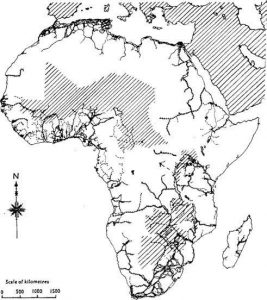
Political restructuring is necessary to correct the sociopolitical structures that were set up for the efficient exploitation of the people, especially through the overcentralized unitary governance. So, political restructuring must be designed with a focus on economic restructuring from a colonial economy to an integrated industrialized economy to economically empower the people, and not just the political classes seeking power.
Though fiscal federalism is advocated, it would be unfair to restructure to fiscal federalism in a colonial economy whose only financially viable parts were those designed for colonial interests. It is not a coincidence that the two most viable states, Lagos and Port Harcourt, are colonial trade rail terminals and seaports. Since the focus of the colonial economy was on cash crops and minerals only needed by the Western colonial powers, the huge interregional civilizational trade based on food crops and goods were not integrated by rail transport, therefore face huge wastages and low productivity.
It has been advocated that a form of a Marshallian Plan to economically build and integrate large parts of the nation that are down the ladder of the colonial economy. Rather than just pumping money into the states or regions to build their productive capacities, the federal government must lay a template of balanced development by linking and integrating the national economy through building three East-West railways – (Lagos-Calabar, Ilorin-Yola and Sokoto-Maiduguri) that will reintegrate the previous civilizational economics. This will effectively turn the railway designed colonial economy into a railway structured national economy.
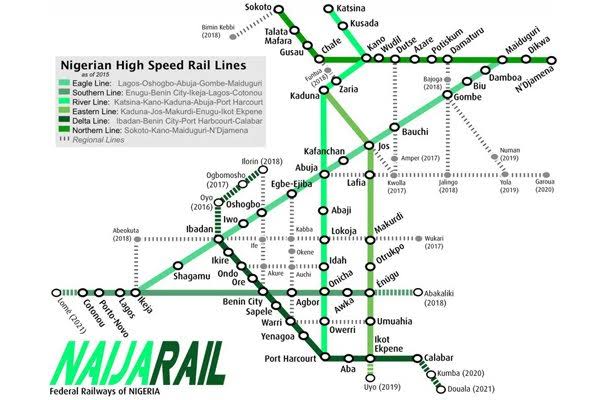

Though in Africa, railways were used to establish the colonial economy, railway was the launchpad of industrialization in Europe and especially USA. Therefore not only the direction of railway and where it serves is important in the type of economy being built, also the focus has to be on the economic and industrial multiplier effects of the railway system. Like with USA, where the 1830 to 1850 railroad boom was inspired with the construction of a few main routes that spawned thousands of miles of feeder routes to access the cotton plantations, the three East-West civilizational Routes being advocated, with the two North-South colonial routes, state and private investment would build feeder routes to every nook and corner.
Most important is that the railway complex would bring about industrial multiplier effects as all tiers of government and private investors will develop iron and chemicals industries to cater for the maintenance of the rails and trains with 30,000 components. Not only would Railways open up agricultural zones, Railways have the highest multiplier effects across the economy as every Naira invested or railway job created will create 20 times in investment and employment in other industries. Railways spur growth in logistics, freighting, distribution and other businesses. Agricultural production and supply will multiply a 1,000% due to reduction in spoilage.
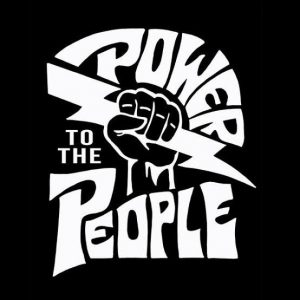
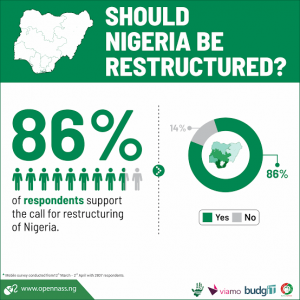
Most important is industrialization multiplier effects since Nigerian agriculture already provides 38% of employment and 24% of national income, compared to the 1.6% combined income of Iron and Steel, Plastic and Rubber, Electrical and Electronics that railways and industrialization need to multiply tenfold.
Just like when you empower a dependent person with education and skills, once they start marking money, they want their independence and move out of the house, so would it be the states that will push for fiscal federalism when they are economically empowered to be independent through manufacturing and services.
